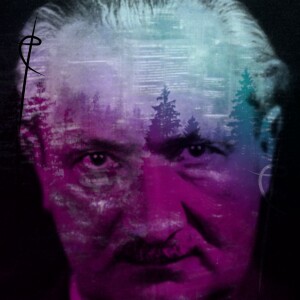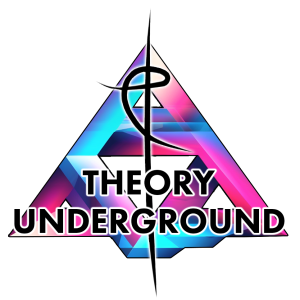
Heidegger is known as one of the most groundbreaking, original, and difficult philosophers to ever read. He is also known for being a Nazi. Some say that his Nazi membership (and personal life) shouldn't matter because he wasn't a political thinker anyway, and then there are those who argue that everything he writes should be seen through that lens, or that he should be full on cancelled.
Without Heidegger there would be no Derrida, de Beauvoir, Sartre, Foucault, Levinas, Merleau-Ponty, Arendt, or Butler, just to name a few. How could philosophers, so many of them politically left, continue reading Heidegger after he failed to denounce Nazism?
This evening we are joined by Dr. Iain Thomson from University of New Mexico to talk about how life relates to philosophy, specifically regarding the life and work of Martin Heidegger.
Professor Thomson regularly teaches "Introduction to Philosophy," "Existentialism," "Modern Political Philosophy," and various courses on contemporary continental philosophy, focusing on figures such as Heidegger, Levinas, and Derrida, or on issues like the philosophical significance of death, technology, and nihilism.
His personal site:
http://www.unm.edu/~ithomson/
Support this work! Follow on me on
https://medium.com/@theorypleeb
https://goodreads.com/theorypleeb
https://www.facebook.com/theorypleeb
https://www.twitter.com/theorypleeb
https://www.instagram.com/theorypleeb
Become a patron: https://www.patreon.com/theorypleeb
ONE TIME DONATIONS: http://www.paypal.com/cgi-bin/webscr?cmd=_s-xclick&hosted_button_id=DFJQXPB3CN29C&source=url
On YouTube make sure to subscribe for new content:
https://www.youtube.com/channel/UC5dMDMT8K1_X8TV1J7ALIxg?sub_confirmation=1
view more
Without Heidegger there would be no Derrida, de Beauvoir, Sartre, Foucault, Levinas, Merleau-Ponty, Arendt, or Butler, just to name a few. How could philosophers, so many of them politically left, continue reading Heidegger after he failed to denounce Nazism?
This evening we are joined by Dr. Iain Thomson from University of New Mexico to talk about how life relates to philosophy, specifically regarding the life and work of Martin Heidegger.
Professor Thomson regularly teaches "Introduction to Philosophy," "Existentialism," "Modern Political Philosophy," and various courses on contemporary continental philosophy, focusing on figures such as Heidegger, Levinas, and Derrida, or on issues like the philosophical significance of death, technology, and nihilism.
His personal site:
http://www.unm.edu/~ithomson/
Support this work! Follow on me on
https://medium.com/@theorypleeb
https://goodreads.com/theorypleeb
https://www.facebook.com/theorypleeb
https://www.twitter.com/theorypleeb
https://www.instagram.com/theorypleeb
Become a patron: https://www.patreon.com/theorypleeb
ONE TIME DONATIONS: http://www.paypal.com/cgi-bin/webscr?cmd=_s-xclick&hosted_button_id=DFJQXPB3CN29C&source=url
On YouTube make sure to subscribe for new content:
https://www.youtube.com/channel/UC5dMDMT8K1_X8TV1J7ALIxg?sub_confirmation=1
More Episodes
Week 7 In Review + IN DEFENSE OF LECTURES
 2023-02-19
2023-02-19
 24
24
 2023-02-19
2023-02-19
 24
24
LACAN 101: DRIVE vs. DESIRE | D&M S1:E20
 2023-02-17
2023-02-17
 35
35
 2023-02-17
2023-02-17
 35
35
LACAN 101: Social change and death drive | D&M S1:e17
 2023-02-16
2023-02-16
 24
24
 2023-02-16
2023-02-16
 24
24
LACAN 101: Death drive can be good too | D&M S1:e16
 2023-02-16
2023-02-16
 24
24
 2023-02-16
2023-02-16
 24
24
LACAN 101: Trump and death drive | D&M S1:e15
 2023-02-16
2023-02-16
 21
21
 2023-02-16
2023-02-16
 21
21
LACAN 101: DEATH DRIVE | D&M S1:e13
 2023-02-16
2023-02-16
 36
36
 2023-02-16
2023-02-16
 36
36
LACAN 101: Traversing the Fantasy | D&M S1:e12
 2023-02-15
2023-02-15
 30
30
 2023-02-15
2023-02-15
 30
30
012345678910111213141516171819
Create your
podcast in
minutes
- Full-featured podcast site
- Unlimited storage and bandwidth
- Comprehensive podcast stats
- Distribute to Apple Podcasts, Spotify, and more
- Make money with your podcast
It is Free
- Privacy Policy
- Cookie Policy
- Terms of Use
- Consent Preferences
- Copyright © 2015-2024 Podbean.com






